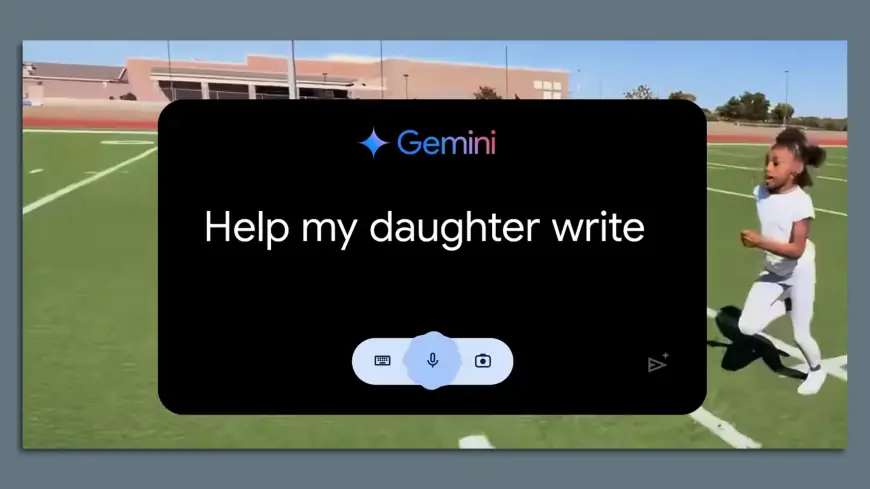Google Olympics ad sparks renewed controversy over generative AI
Google's Olympics ad has reignited debate over the use of generative AI, stirring controversy and raising concerns about the technology's impact and ethical implications.

Google's latest ad for AI, featuring a father using the Gemini chatbot to draft a fan letter for his daughter to an Olympic gold medalist, has stirred online backlash.
The big picture: Critics view the ad as insensitive, arguing it undermines the personal touch of handwritten fan letters with AI-generated drafts. However, others point out that the ad emphasizes Gemini as a tool for starting drafts, which many use to overcome writer's block.
Catch up quick: The "Dear Sydney" ad depicts a dad using Gemini to create a draft letter with personal details about his daughter's admiration for Sydney McLaughlin-Levrone. The draft is then used as a starting point.
Reactions: Online commentators, including NPR's Linda Holmes and media professor Shelly Palmer, criticize the ad for promoting a shortcut and encouraging lazy parenting. Palmer argues the ad teaches children to rely on AI rather than develop their own writing skills.
Counterpoint: Supporters of AI chatbots like Gemini, ChatGPT, and Claude appreciate their role in easing the writing process and providing initial ideas, which can then be personalized.
What Google says: Google emphasizes that their ad aims to celebrate Team USA and demonstrate how Gemini can serve as a helpful starting point for writing. Alana Beale, Google’s ad communications manager, highlighted the tool's potential to enhance creativity rather than replace it.
Gemini’s own take: In a self-reflective comment, Gemini admitted the ad could come across as disingenuous, suggesting that a fan’s letter should authentically reflect their own feelings rather than being AI-generated.
Zoom out: Chatbots have become integral in various aspects of modern life. In the professional sphere, they assist with drafting documents, managing emails, and generating reports. For job seekers, chatbots like ChatGPT help polish resumes and cover letters, while managers use them to draft performance reviews and feedback. In personal life, parents use chatbots to support educational activities, plan activities, and even manage household tasks. These tools also play a role in enhancing relationships by offering companionship and conversation.
Moreover, chatbots are increasingly being used in creative fields, such as generating ideas for writing, music composition, and art. They serve as collaborative partners for brainstorming and overcoming creative blocks, enabling users to explore new avenues and refine their work.
Our thought bubble: While generative AI can streamline and enhance the creation of drafts, it remains a tool that requires human input for accuracy and personalization. Teaching children how to use these tools effectively, while understanding their limitations, is as important as learning traditional skills like writing a fan letter.
The bottom line: The evolution of technology—whether through spellcheck, Wikipedia, or text messaging—has consistently reshaped how we approach tasks and communication. Generative AI is the latest step in this ongoing transformation, offering valuable support while still relying on human oversight to ensure quality and authenticity. These advancements are part of a broader trend of integrating technology into our lives, aimed at improving productivity and creativity without compromising our human touch.












































